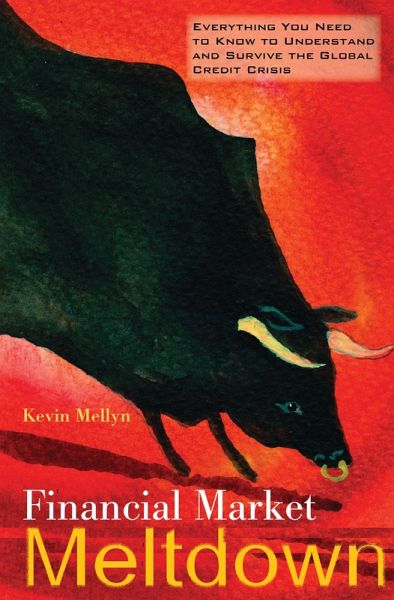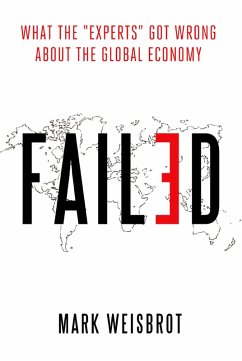
Financial Market Meltdown (eBook, PDF)
Everything You Need to Know to Understand and Survive the Global Credit Crisis
Versandkostenfrei!
Sofort per Download lieferbar
46,95 €
inkl. MwSt.
Weitere Ausgaben:

PAYBACK Punkte
23 °P sammeln!
This is the only book the general reader will ever need in order to understand the workings of money, banking, and finance as a citizen and consumer. Financial Market Meltdown: Everything You Need to Know to Understand and Survive the Global Credit Crisis makes the arcane world of finance easily understood in concrete terms. This is not simply a quick recap of the current crisis. It is a guide designed to develop a real and lasting understanding of money and finance-an understanding readers can use to come to their own conclusions regarding the 2008 meltdown and any further economic events. Fi...
This is the only book the general reader will ever need in order to understand the workings of money, banking, and finance as a citizen and consumer. Financial Market Meltdown: Everything You Need to Know to Understand and Survive the Global Credit Crisis makes the arcane world of finance easily understood in concrete terms. This is not simply a quick recap of the current crisis. It is a guide designed to develop a real and lasting understanding of money and finance-an understanding readers can use to come to their own conclusions regarding the 2008 meltdown and any further economic events. Financial Market Meltdown explains the nature and workings of money, credit, financial instruments, and markets, from the beginnings of integrated finance in Medieval Italy up to the panic of 2008. It then describes how the modern global financial ecology evolved through a series of historical accidents and how this limits what can actually be done to make the system "safe." Throughout, author Kevin Mellyn uses simple examples, analogies, and the "real" history of institutions to make abstract financial concepts concrete and comprehensible.













